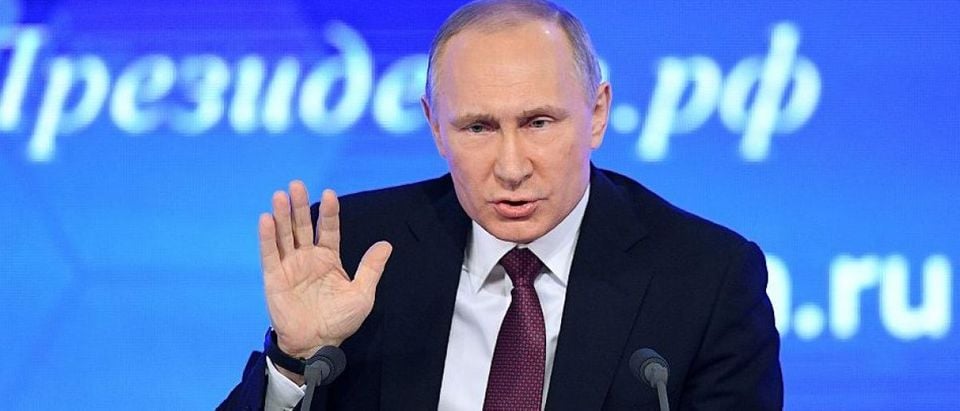Former CIA Director Michael Morell said the Obama administration’s sanctions directed at Russia for allegedly hacking U.S. political institutions will accomplish virtually nothing and are essentially meaningless.
In an interview with The Cipher Brief published Wednesday, Morell, who served as former acting CIA director in the Obama administration, stated bluntly the new sanctions are “both confusing and weak.”
Last Thursday, President Barack Obama retaliated against Russia by closing down two of its U.S. compounds used for intelligence gathering in Maryland and New York and expelled 35 Russian diplomats.
The White House also said it applied sanctions to the GRU and FSB, two Russian intelligence agencies, along with four officers from the GRU and three companies that provide support to GRU operations.
But for Morell, these sanctions are basically pointless when measured against the policy goal of deterrence.
“I think if you’re Russian President Vladimir Putin, and if you think you played a role in influencing the outcome of a U.S. Election to your liking, which I’m certain he does, there is nothing in this package that would even give him pause against doing that again,” Morell said.
The part of the sanctions that is confusing to Morell is that it’s unclear whether Russian diplomats were expelled because of election interference, or as a response to Russia’s harassment of U.S. diplomats in Moscow.
Additionally, Morell views the sanctions as weak primarily because it’s nearly impossible to touch either the FSB or the GRU. Russian officers from either intelligence agency are undercover and overseas. Their bank accounts are hidden.
“And then sanctions against the small number of individuals, simply means that they can’t have financial accounts in the U.S. or in U.S. financial institutions or travel here,” Morell added. “So as far as I know, none of the sanctioned individuals have any known financial interests that would be affected, and they’re going to wear that travel ban like a badge of honor.”
While Morell acknowledged closing Russian compounds in the U.S. would stymie intelligence-gathering operations, that block would only last temporarily. Moreover, once the Russians establish a new physical presence, it will also take some time for the U.S. to effectively find and monitor it.
The same principle applies to the expulsion of Russian intelligence officers. Russia will simply send new ones, and then U.S. intelligence will be preoccupied with determining the identity of the new officers.
“There is always a cost to expelling an intelligence officer: somebody is going to replace him, and it will take a little bit of time to figure that out,” Morell said.
While the U.S. intelligence community has universally pointed the finger at Russia for U.S. election interference, WikiLeaks founder Julian Assange said in an interview with Fox News Tuesday that the source for John Podesta’s emails was not Russia, a claim President-elect Donald Trump immediately seized upon. While the intelligence community has released a report, it is bereft of substantial evidence; officials have said they don’t want to jeopardize sensitive methods and sources.
Follow Jonah Bennett on Twitter
Send tips to jonah@dailycallernewsfoundation.org.
All content created by the Daily Caller News Foundation, an independent and nonpartisan newswire service, is available without charge to any legitimate news publisher that can provide a large audience. All republished articles must include our logo, our reporter’s byline and their DCNF affiliation. For any questions about our guidelines or partnering with us, please contact licensing@dailycallernewsfoundation.org.


